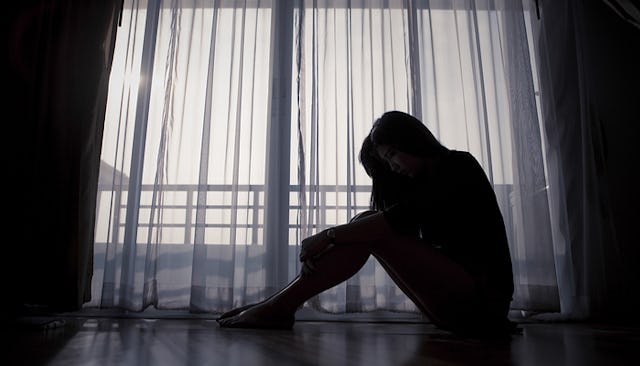Congress Passes Groundbreaking Legislation To Help Moms With PPD

A bill passed that will help moms suffering from postpartum depression
After passing in the House of Representatives on November 30th and the Senate just yesterday, a proposed bill to help women affected by postpartum depression, the first of its kind, is officially a reality. It’s beyond encouraging that the federal government is recognizing the importance of supporting moms suffering from maternal mental health issues.
The bill, introduced by Rep. Katherine M. Clark (D-Mass.), is called the Bringing Postpartum Depression Out of the Shadows Act. It will allow the Secretary of Health and Human Services to direct federal money to states for the purpose of screening, assessing and treating postpartum depression. The grant money will give states the freedom to establish, improve or maintain maternal mental health programs that can help women who are pregnant or have given birth.
With more than 400,000 women each year suffering from postpartum depression and only a small percentage receiving treatment, it’s a relief to know that our country is taking it seriously. Without proper support in place, it’s difficult for a mom to find the resources needed to treat maternal mental illness, including therapy and medication.
Clark told Huffington Post, “We need policies that treat mental health and physical health with equal importance. When one in seven moms suffers from postpartum depression and only 15 percent get help, it’s clear our moms are underserved.” She says, “As a mom of three boys, I know how rewarding, as well as how overwhelming and exhausting, a new baby can be.”
She also acknowledges the affects PPD can have on kids saying, “We know that children do better in school and in social situations when their moms get the treatment they need for postpartum depression.”
When the bill passed in the House, Clark tweeted, “No mom should feel alone while suffering from the pain, isolation, and frustration that comes with postpartum depression. The health and success of families include — and begin with — the whole health of our moms. The passage of the Bringing Postpartum Depression Out of the Shadows Act means we’re taking active steps to break down the stigmas that have kept moms from getting the care they need and deserve.”
The stigma attached to mental illness in general, but particularly to PPD, is so harmful. In a society where women are fed the message from all corners that motherhood should make them happy, the feelings of depression and hopelessness resulting from maternal mental illness can make moms feel guilty or like they aren’t good parents. This is simply unacceptable, and our government taking significant measures to treat PDD as a real illness is a step in the right direction.
Noting that moms make up less than a fifth of Congress, Clark says that means it’s “especially important for us to bring these perspectives into policymaking.”
The bill is part of H.R. 34, the 21st Century Cures Act, which includes a section on postpartum depression treatment and screening. It builds on already-existing efforts in states to address maternal mental illness and will also help healthcare providers to be equipped to recognize, diagnose and treat the moms who need help.
Clark says, “I introduced this bill because our moms need to know they matter ― that we, as a nation, value them and will fight for the health and success of their families.”
And we’re so grateful she did.